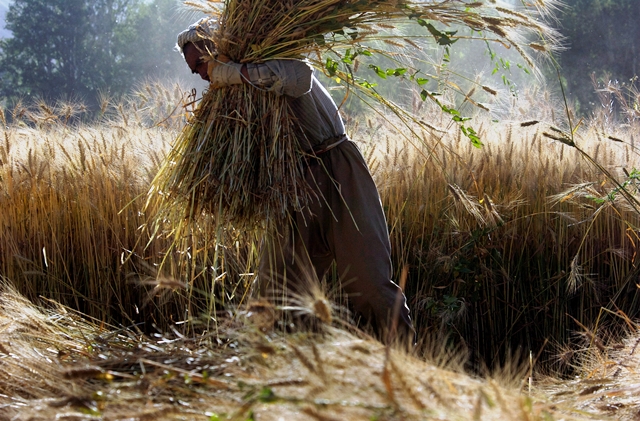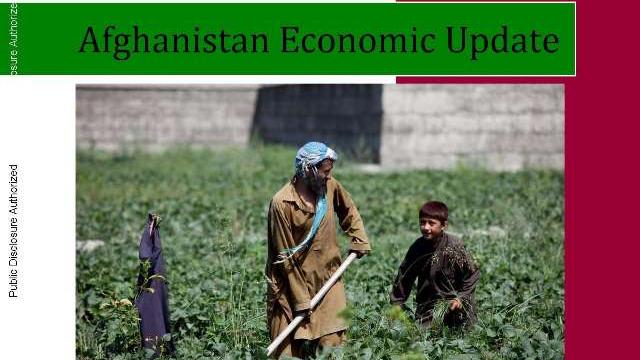KABUL - Following last year’s strong economic growth driven by “an exceptional agriculture harvest and rapid expansion of the services sector,” Afghanistan is facing a slowdown in growth this year mainly due to uncertainty surrounding the ongoing political and security transitions, according to a new World Bank study report released today.“Economic activity and private investment appear to be slowing considerably in 2013 as a result of increased uncertainty surrounding the political and security transition,” said the World Bank’s bi-annual Afghanistan Economic Update.
It projected economic growth at 3.1 per cent in 2013. This follows strong growth of 14.4 per cent in 2012 resulting from an exceptional harvest and rapid expansion in services.
The study said the fragile security environment has been “a considerable constraint” to private investment and growth.
“Continued violence, economic crime and systemic corruption also have often undermined progress in Afghanistan’s governance and state-building agenda. Much will depend, therefore, on Afghanistan’s success in achieving peace, stability and reconciliation,” the report continued.
While the Afghan security forces have demonstrated competence in responding to security incidents, it added, uncertainty persists about the security outlook after most international forces withdraw in 2014. “In this context, investment and economic growth have slowed down.”
The report said agricultural growth in 2013 is also expected to be “flat or slightly negative” after a bumper harvest in 2012.
The study has also projected weak economic growth in 2014 before picking up in 2015 “assuming a smooth political and security transition.”
“Negative real growth in the agriculture sector, coupled with slower growth in industry and services, are expected to lead to lower overall economic growth in 2013,” it said.
The Afghan National Security Forces are assuming security responsibilities for the first time since 2001 from their international allies who are ending their combat mission in Afghanistan next year.
The security transition coincides with political transition as the country is slated to hold the Presidential and Provincial Council elections on 5 April next year, marking the transfer of power from one elected president to another elected president for the first time in Afghanistan’s history.
The new World Bank study also found that revenue collection has weakened in 2013, “potentially delaying Afghanistan’s path toward self-reliance.”
“With the political uncertainty undermining enforcement, revenues are expected to remain weak at about 10-10.5 per cent of Gross Domestic Product (GDP) during 2013-14. In order to preserve fiscal sustainability, a concerted effort will be required going forward to improve revenue mobilization by strengthening tax and customs administration and by expediting introduction and implementation of the planned value-added tax,” said the report.
Despite the transition-related uncertainty and underperformance, the World Bank urged Afghanistan to stay focused on its medium term structural reform goals by safeguarding sustainability by mobilizing revenue and securing grant assistance; supporting inclusive and job-creating post-transition growth by unlocking the potential of the agriculture and natural resource sectors; improving upon the low levels of human capital and skills; and continuing to strengthen institutions and governance.
The Government of Afghanistan had agreed to these reform goals at an international donor conference in the Japanese capital, Tokyo, last year.
The World Bank study said official exports increased in the first half of 2013, “most likely due to improved recording.”
Exports of dry fruits rose by more than 50 per cent to $58 million and exports of carpets quadrupled to about $65 million. Exports of fresh fruits were recorded at $12.8 million in the first half of 2013 compared to only $2.2 million during the same period in 2012. Other significant export items such as oil seeds, medicinal plants and animal by-products (such as wool and skin) also increased significantly in the first half of 2013.






